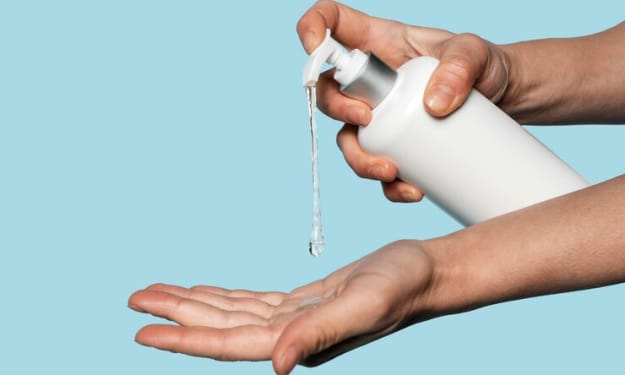The Psychology of Acne
Understanding the Emotional and Mental Impact

Acne is often dismissed as a trivial skin condition, particularly during adolescence, but its implications go far beyond physical appearance. The psychological impact of acne can be profound, affecting self-esteem, social interactions, and overall mental health. This article delves into the psychology of acne, exploring its effects on mental well-being, the societal pressures associated with clear skin, and strategies for coping with the emotional burden.
Prevalence and Physical Reality of Acne
Acne is one of the most common skin conditions, affecting nearly 85% of individuals between the ages of 12 and 24. While often associated with puberty, acne can persist into adulthood, affecting individuals well into their 30s and beyond. The condition is characterized by the presence of pimples, blackheads, whiteheads, and cysts, primarily on the face, back, and chest. These blemishes result from clogged hair follicles, excess oil production, bacteria, and inflammation.
The Psychological Impact of Acne
**1. Self-Esteem and Self-Image:**
Acne can significantly impact an individual's self-esteem and self-image. Clear skin is often equated with beauty and health in many cultures, leading those with acne to feel unattractive or unhealthy. This perception can start early, with adolescents feeling particularly vulnerable as they navigate the pressures of fitting in and developing their identities.
**2. Social Anxiety and Isolation:**
The visible nature of acne can lead to social anxiety and a tendency to avoid social interactions. Individuals with severe acne might fear judgment or ridicule, leading to withdrawal from social activities and a reluctance to form new relationships. This isolation can exacerbate feelings of loneliness and depression.
**3. Depression and Anxiety:**
Studies have shown a strong correlation between acne and mental health issues such as depression and anxiety. The chronic nature of the condition, coupled with the societal emphasis on appearance, can lead to persistent negative thoughts and feelings. Adolescents with acne are particularly susceptible to depression, given the critical period of emotional and social development during this stage of life.
**4. Body Dysmorphic Disorder (BDD):**
In severe cases, individuals with acne may develop Body Dysmorphic Disorder (BDD), a mental health condition where a person becomes obsessively concerned with perceived defects or flaws in their appearance. BDD can lead to excessive mirror checking, skin picking, and even seeking multiple cosmetic procedures.
Societal and Cultural Influences
**1. Media and Beauty Standards:**
The media plays a significant role in shaping societal perceptions of beauty. Advertisements, TV shows, movies, and social media often portray flawless, airbrushed skin, reinforcing the notion that clear skin is the norm and blemishes are undesirable. This constant exposure to unattainable beauty standards can intensify the emotional distress associated with acne.
**2. Peer Pressure and Bullying:**
Adolescents and young adults are particularly vulnerable to peer pressure and bullying related to their appearance. Teasing or negative comments about acne can leave lasting psychological scars, impacting an individual's self-worth and confidence. The fear of such interactions can lead to heightened self-consciousness and avoidance behaviors.
**3. Cultural Differences:**
Perceptions of acne and its psychological impact can vary significantly across cultures. In some societies, clear skin is heavily emphasized, leading to greater emotional distress for those with acne. In contrast, other cultures may place less emphasis on physical appearance, potentially mitigating some of the psychological burdens. Understanding these cultural differences is crucial for providing appropriate support and treatment.
Coping Strategies and Treatments
**1. Medical Treatments:**
Effective treatment of acne can significantly alleviate its psychological impact. Dermatologists can prescribe a range of treatments, including topical and oral medications, chemical peels, and laser therapy. Early and effective treatment can prevent the progression of acne and reduce the risk of scarring, which can have lasting psychological benefits.
**2. Psychological Support:**
Given the strong link between acne and mental health, psychological support should be an integral part of treatment. Cognitive Behavioral Therapy (CBT) can help individuals challenge negative thoughts and develop healthier coping mechanisms. Support groups and counseling can also provide a safe space for individuals to share their experiences and receive validation.
**3. Building Self-Esteem:**
Encouraging individuals to focus on their strengths and positive attributes can help build self-esteem. Activities that promote self-acceptance and self-care, such as mindfulness, meditation, and positive affirmations, can also be beneficial. It's important to remind those struggling with acne that their worth is not defined by their appearance.
**4. Social Skills Training:**
Social skills training can help individuals with acne develop the confidence to engage in social interactions. Techniques such as role-playing, assertiveness training, and communication skills can reduce social anxiety and improve relationships.
**5. Education and Awareness:**
Raising awareness about the psychological impact of acne can foster a more supportive environment. Educating the public about the realities of acne and promoting empathy and understanding can reduce stigma and encourage more compassionate interactions.
Personal Stories and Testimonials
Hearing from individuals who have navigated the psychological challenges of acne can be both inspiring and comforting. Personal stories and testimonials highlight the resilience and strength of those who have struggled with the condition. These narratives can also provide valuable insights into effective coping strategies and the importance of seeking help.
**1. Overcoming Social Anxiety:**
Many individuals with acne have shared their journeys of overcoming social anxiety and building confidence. These stories often emphasize the importance of supportive relationships and the impact of small, positive interactions.
**2. Finding Effective Treatment:**
Testimonials about finding the right treatment can offer hope to those still searching for solutions. Stories of persistence and the eventual relief from symptoms can motivate others to continue seeking medical advice and trying different approaches.
**3. Embracing Self-Acceptance:**
Some individuals have found peace by embracing self-acceptance and redefining their notions of beauty. These narratives often highlight the transformative power of self-love and the importance of internal validation over external approval.
The Role of Healthcare Providers
Healthcare providers play a critical role in addressing both the physical and psychological aspects of acne. Dermatologists, general practitioners, and mental health professionals should work collaboratively to provide holistic care.
**1. Holistic Approach:**
A holistic approach to acne treatment involves addressing both the physical symptoms and the psychological impact. This can include combining medical treatments with psychological support and lifestyle modifications.
**2. Empathy and Communication:**
Healthcare providers should approach acne with empathy and effective communication. Listening to patients’ concerns and validating their experiences can help build trust and encourage adherence to treatment plans.
**3. Referrals and Resources:**
Providers should be prepared to refer patients to mental health professionals when needed. Providing resources such as support groups, educational materials, and online communities can also be beneficial.
Conclusion
The psychological impact of acne is a significant and often overlooked aspect of this common skin condition. Understanding the emotional and mental toll that acne can take is crucial for providing comprehensive care and support. By addressing both the physical and psychological aspects of acne, we can help individuals navigate their journeys with greater resilience and confidence.
Efforts to raise awareness, educate the public, and promote empathy can create a more supportive environment for those affected by acne. Encouraging self-acceptance, providing psychological support, and advocating for holistic treatment approaches are key steps in mitigating the emotional burden of acne.
Ultimately, the goal is to empower individuals to feel confident and valued, regardless of their skin condition. By acknowledging and addressing the psychology of acne, we can contribute to the overall well-being and mental health of those who experience this common yet challenging condition.
About the Creator
Local Man
I am a dedicated writer known for my versatility and creativity. With a strong passion for storytelling, engaging content across a variety of genres, including articles, blogs, and copywriting.
Enjoyed the story? Support the Creator.
Subscribe for free to receive all their stories in your feed. You could also pledge your support or give them a one-off tip, letting them know you appreciate their work.






Comments
There are no comments for this story
Be the first to respond and start the conversation.